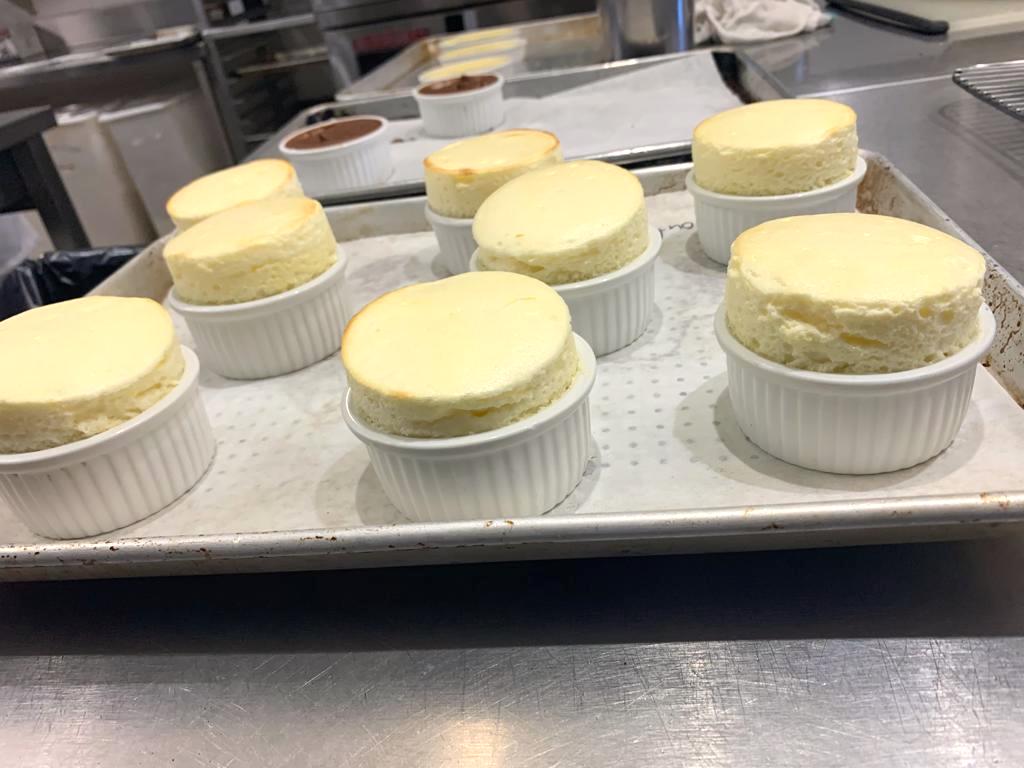While I attended pastry school, I jumped on the opportunity to train at a patisserie. It was one I admired as a customer, and I wanted to see if working there was my next career step. It wasn’t quite what I had expected.
1. You may not get paid.
I’ve done my fair share of unpaid internships while in college, but very rarely did those feel like work. This was definitely work. Officially, I was considered a trainee, and I’ve heard that trainees should be getting paid. But I was desperate for a real-world opportunity and learned a lot from it.
My classmates and I thought that finding places to trail/stage, train and intern would be easy, since at the time, the culinary industry seemed desperate for workers. But very few replied to our inquiries, perhaps because we were applying during a very busy season.
2. It’s not glamorous.
I was training on weekend evenings during dessert tastings, and I was tired and sweaty while the customers across from me were having fun nights out. At times, I was a little envious and wanted to be those people instead.
Also, I trained during a closing shift and that meant wiping everything down and sweeping the floors. I was happy to do this, but it wasn’t all baking all the time as I was hoping.
3. It’s not creative work–at least not right away.
As a starting baker, you’re there to execute the chef’s vision. So I spent hours just cracking eggs, scooping ice cream, and peeling pears. I did progress to mixing doughs and batters for cookies and croissants. But even the bakers and chefs basically made the same items every day.
4. Chefs can be nice.
On TV, chefs seem intimidating. While the environment can be stressful, chefs can be friendly and kind. (I’ve heard the industry has gotten better after recent movements that expose toxic bosses.) My chef was lovely and shared lessons about baking along the way. (The people were also nice, though younger than I was expecting.)
5. There are many different roles/environments.
Even within this patisserie, some bakers work in a different kitchen and at different hours without ever interacting with customers. So you can find a role that suits your working style. From classmates training/working at other bakeries and restaurants, it’s clear that if you don’t like one environment, you may like another.
In New York, space is limited. So this patisserie did not have the most spacious workspaces. While working with big baking sheets, I often worried that they’d flip to the ground or touch someone while hot.
6. What you learn in culinary school may not apply.
School is a controlled setting where everything can be done perfectly. But in the real world, it seems everything is rushed and cramped. If you mess up a recipe in school, you can just start over. But at a professional bakery, you’re wasting a business’s time and money.
7. You will learn more than baking.
We had to do a lot of the cleaning after the patisserie closed. I also got to see organizational systems–or lack thereof. I heard customer feedback as they talked to each other. Also, at the end of the night, I was mentally and physically depleted. So I was able to experience how tough working at a bakery can be.
8. It’s not for everyone.
While I only trained for a month, I learned that the specific role I had during dessert tastings was not for me. I was interested in baking professionally because I wanted to work quietly, and after doing this training, I was more assured that that was my goal. Dessert tastings felt more like working at a fast paced restaurant, which I knew I didn’t want. I couldn’t see doing only this for 5 days a week. It was pretty stressful and physically demanding. So I was fortunate to be able to experience this before deciding to go all in.

